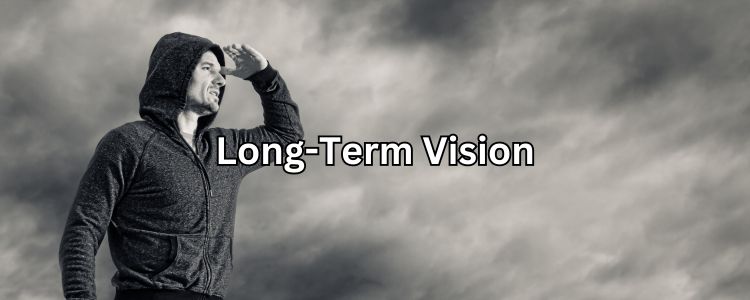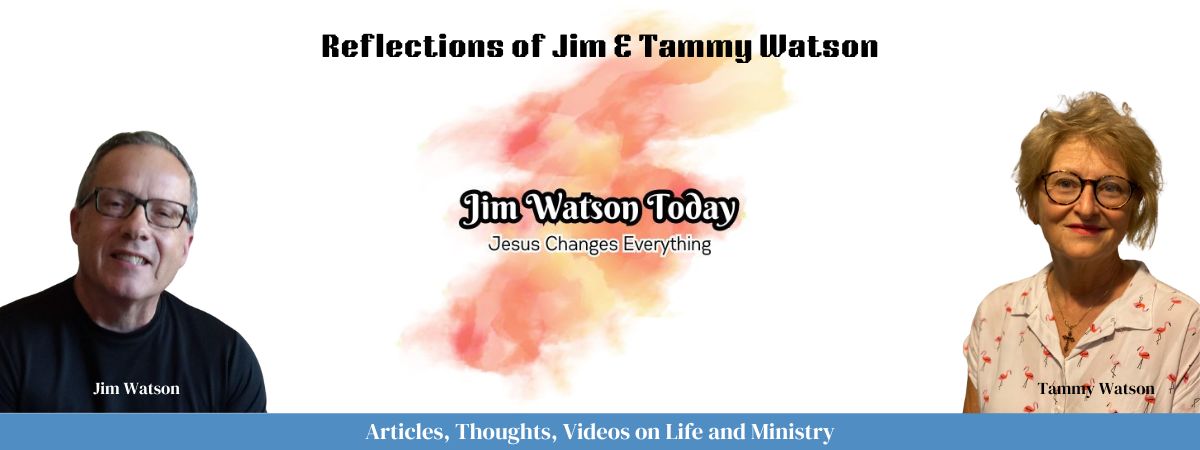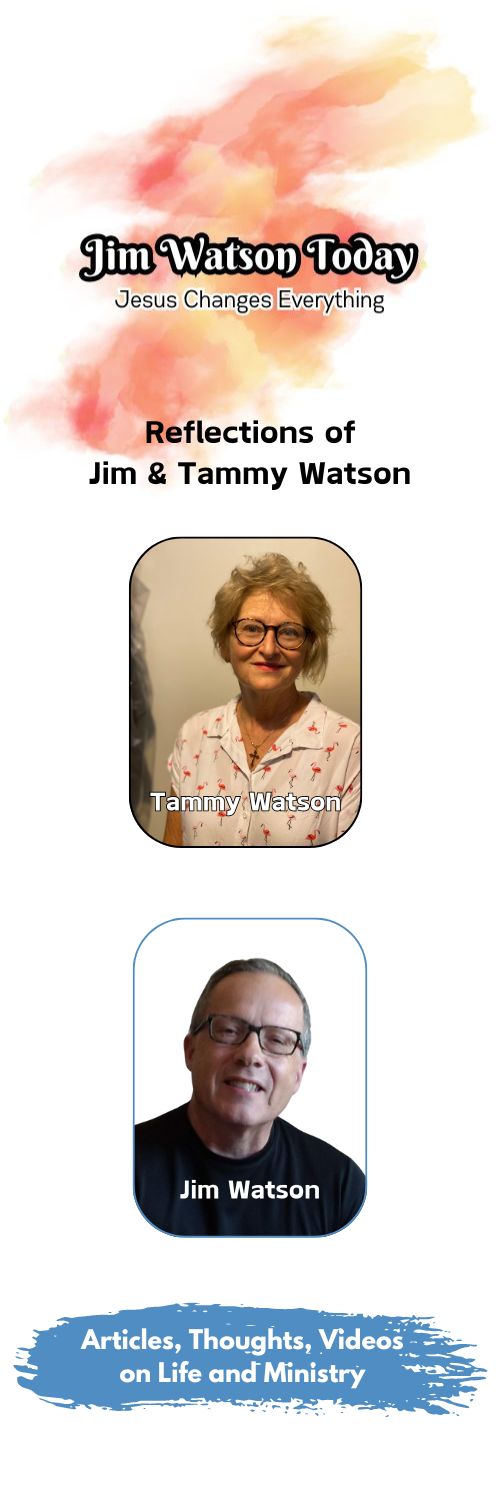
Long-Term Vision

Long-Term Vision
“For which cause we faint not; but though our outward man perish, yet the inward man is renewed day by day. For our light affliction, which is but for a moment, worketh for us a far more exceeding and eternal weight of glory; While we look not at the things which are seen, but at the things which are not seen: for the things which are seen are temporal; but the things which are not seen are eternal.”
(II Corinthians 4:16-18, KJV)
Tammy lost heart. All she could see was the broken windows, the smashed plumbing fixtures, the missing pipes, the gaping holes in the walls, and the mountains of trash. As she looked at the mess, her bottom lip began to quiver, and a tear rolled down her face. “I don’t want to live here,” she cried.
We were in Bridgeport, Connecticut, starting our first mission. The house was in one of the most dangerous neighborhoods in the city. The location was not the problem because we already lived in that area. The problem was the house. She could not envision that shell of a house becoming a home for our family.
“But, Baby, can’t you see? Look. Luis can have a bedroom all to himself. So can Daniel, Angelina, Anais, and Anna. Look at the size of this kitchen. It even has a huge pantry. The dining room will hold a table big enough for the whole family and even a few friends. And look how large the living room is. There is even space for a family room. I know it doesn’t look like much, but Baby, it’s our dream house.” We never lived in that house. Tammy could not see what I saw.
Difficulties, setbacks, and failures are the stuff of life. As they interrupt daily living, we struggle not to quit, to keep moving forward. Our suffering seems senseless, without meaning and hope of relief. We feel forsaken, left to our own devices, as though God no longer cares about us.
Sometimes, it is difficult to understand God’s methods. If only we could figure out what God is doing and somehow understand the purpose of our predicament, then we could persevere and not forsake our calling. If we could see what God sees, we could hang tough, keep fighting, and never surrender.
The Apostle Paul understood suffering. Hardship and setbacks were his constant companions as he lived and fulfilled the call of God in his life. It appears trouble knew his name and even his address; it regularly knocked on his door. Imprisonment, stonings and beatings, arrests, riots, narrow escapes, shipwrecks, and even snakebite were on his resume, descriptions of the price he paid for his faith. Some of his friends betrayed him. Other Christians slandered his reputation. Chased from one city to another, his enemies hounded him, seeking his destruction. If you look closely at his writings, you will see hints of depression and the temptation to quit.
Yet, during all of this, he said, . . . we do not lose heart. In these same verses, he called these problems “a momentary affliction.” What was his secret? What made him continue to move forward? Any one of his difficulties would have destroyed most of us.
For us, a false statement, a minor setback, or a mere inconvenience can bring us to the brink of despair. We wallow in self-pity, cry about our misfortune, and plot revenge. It is as though our nerves are exposed and sensitive to the slightest touch. We do not seem to have an inner toughness to help navigate the problems confronting our lives. Why was Paul able to endure such severe emotional and physical trials?
Paul had vision. His problems were “light and momentary” because he saw them from the perspective of eternity. When the authorities stoned or beat him, the pain was real. He did not enjoy it, but despite all the turmoil and suffering he experienced, he knew his hardships would end, that God would raise him from the dead and wipe the tears from his face. Eternity would be the end of pain, a place of reunion with loved ones, and eternal joy in the presence of God.
Paul’s vision for his life was significant. Many of us have a dream we hope will someday come to pass. But maybe our dream is too small to effectively change our daily routine, and it does not inspire us to make the sacrifices necessary to achieve our vision. Why? Because our view of God is too small, diluted, and weak.
A small, cautious vision is rooted in a theology that believes in absolute certainty for everything connected to our lives. We never attempt anything significant for God unless we secure financing in advance, doors open wide, and everything falls into place. We are not like Paul, who knocked on doors all over Asia Minor, sure in his calling, yet unsure where. He did not wait for ideal circumstances or everything to be in place. He was not afraid of failure.
We mask our fear of failure in pious clichés that excuse our lack of nerve. “Failure will bring dishonor to God,” we reason. Somehow, we have come to believe that faith in Christ turns us into superhumans, men and women who never fail or go belly up and wreck themselves. This belief weakens us.
WHAT DOES VISION HAVE TO DO WITH CHANGE?
Vision strengthens and steels you for the daily tasks and problems encountered on your journey through life. Vision makes it possible to find significance in your most trying circumstances. Because Paul was guided by his vision, he was able to declare: “We faint not”
Vision gives us the backbone to remain true to our convictions. Without vision, difficulties may wear us down and cause us to succumb to our baser nature. A lack of vision stampedes us from the battlefield and destroys our will to persevere. It smashes our moral foundation during times of distress and hurt.
WITHOUT VISION, FAILURE IS AN OPTION
For years, I tried to lose weight and get strong using a program of strict dieting and exercise. I have been on at least a dozen diets. I often tell people I have repeatedly lost over a thousand pounds—the same twenty pounds.
I began each diet filled with enthusiasm and anticipation, having absolute confidence in my success. Some of my diets only lasted a few days, while others lasted up to six months. I was on the Atkins Diet for almost three years. Eventually, though, I would capitulate to McDonald’s and Kentucky Fried Chicken, the real rulers of my life.
Looking thinner and fitting back into some of my clothing was not a big enough vision to motivate me to remain steadfast. At some point, satisfying my immediate hunger became more critical than thinness. I needed a more significant reason than thinness for losing weight.
I could blame the diet, thus evading personal responsibility. “It’s not my fault” is a great place to take refuge. It makes it easier for me to accept failure as an option. What I needed was a vision more significant than being thin to fortify me for my weight-loss journey, giving me a reason not to succumb to my hunger.
Finally, I realized that if I wanted to be around for my grandchildren and continue in ministry, I needed to do something about my weight. This became my new vision, and I have been eating carefully and exercising strenuously for the last seven years. This new vision changed everything.
YOUR VISION MUST BE GOD-INSPIRED
A bigger vision for your life must be rooted in your relationship with God. God can defeat your ungodly or harmful behavior and make the vision materialize. A vision not bathed with God’s power is meaningless and futile, too small to provide you with the necessary sticking power to accomplish your life’s purpose. The ultimate vision for our lives must flow from God’s ultimate purpose for us. Romans 8:29 reads, “For whom he did foreknow, he also did predestinate to be conformed to the image of his Son.”
The events and decisions that are part of daily life become the building blocks God uses to shape Christ’s image within each of us. That image creates and defines our vision. Without Christlikeness, we end up as a caricature of what might have been and suffer from missed opportunities and meaninglessness.
Vision without Christlikeness wreaks havoc on organizations, relationships, marriages, and reputations. When your vision comes before purpose, self-sufficiency and the will to succeed become the driving forces behind the vision. Ultimately, the vision’s culmination becomes a monument to the visionary leader and his or her followers.
If vision does not flow from Christlikeness, it is susceptible to corruption by the ebb and flow of success and failure. Christlikeness keeps our motives in check, pride from consuming our accomplishments, and personal and institutional power from destroying our humility and dependence on God.
Christlikeness is a product of your relationship with God, and the Scriptures are the primary source of that relationship. Secondary sources of interaction are circumstances and events in your life, the input of godly men and women, and the still, small voice that speaks to you in your prayers and meditations.
The Spirit of God uses all these interactions to help you formulate a vision for your life. Christlikeness is the plumb line for measuring that vision. Consequently, as you grow in Christ, you must modify your vision to accommodate a growing maturity and Christlikeness.
The purpose of your life is Christlikeness. Your vision is the mission that God has called you to live out in this world. Christlikeness fills that vision with godliness and ultimately brings glory to God. Bringing glory to God is the supreme goal of your vision and life.
Our purpose as Christians is to become Christlike. Make that purpose the highest priority of your life. Ask God to give you a vision for your life. Build that vision on the foundation of Christlikeness. A vision originating from godliness rests on a solid footing and brings glory to God regardless of its success or failure. Do not settle for a small vision; ask God for a vision that challenges you to be bigger than you are.
If you have a vision for your life, sacrificing to fulfill that vision is not an aberration or mistake but a necessary component of success. Start looking at God’s big picture for your life. Without that picture, you will sink into the swamp of every trouble and setback. Instead, be like Caleb (Joshua 14:6-15). He went to the high country, chasing down giants. He had a vision. Do you have a vision?




